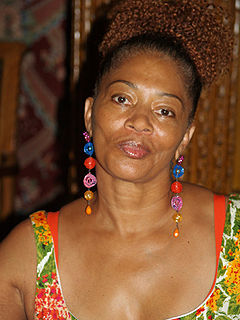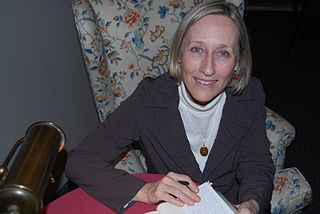A Quote by Terry McMillan
I just believe that young people need to be able to learn how to write in their own voice. Just like a musician, you pride yourself on having your own distinct sound.
Related Quotes
Figure out whether or not you believe in yourself, and if you don't, find a way to. Because even more than you want it, you must believe it. And learn about yourself. The rhythm of one's spirit is just as important as what you look like or what you sound like. Who are you? What's your voice? What are you dying to contribute?
You go out into the world, you read everything you can read, you imitate the things you love, and you learn how hard it is to do. Eventually, you learn your own vision of the world, you learn your own voice and how to hear it, and you learn to write your own work. Writers today have as many opportunities as my generation did, but they don't see the examples as clearly as we did.
Write like you write, like you can't help but write, and your voice will become yours and yours alone. It'll take time but it'll happen as long as you let it. Own your voice, for your voice is your own. Once you know where your voice lives, you no longer have to worry so much about being derivative.
Make your own worlds. Make your own laws. Make your own creations, your own star systems. Don't feel answerable to anyone, or as though you have to create after some preordained model. You don't have to write like myself, or King or Anne Rice: be yourself. Nothing is more wonderful than discovering a new voice, particularly if it happens to be your own.
Trying to make your own sound is hard. When I was producing for other artists, I could just produce and write songs as a normal songwriter, and almost make them generic. The artists themselves, whoever is singing that song, can put their own twist on it. When it came to my own material, I had to really dig deep, because I was just writing generic stuff. It sounded like everybody else, like Justin Timberlake, like Usher. I never wanted to sound like someone, that's when you know it's not going to work.
When a young person asks me: 'Can you show me how to do this?' I simply answer: 'No, I am going to show you how to do it. But then, you'll have to learn with your own technique, your own way of moving, your style, your abilities and your limitations. You are going to learn to be yourself, not someone else.
The school of relationships is where you learn self-knowledge. I just don't know how you could learn it sitting alone in the desert on a rock by yourself. You have to see where you fail at it. And that confrontation with your own ability - "I was again not able to love" - those are the teachable moments.
All forests have their own personality. I don't just mean the obvious differences, like how an English woodland is different from a Central American rain forest, or comparing tracts of West Coast redwoods to the saguaro forests of the American Southwest... they each have their own gossip, their own sound, their own rustling whispers and smells. A voice speaks up when you enter their acres that can't be mistaken for one you'd hear anyplace else, a voice true to those particular tress, individual rather than of their species.
That's that Dungeon Family ethos: being able to reinvent yourself, stand out and stand alone. Having your own character and having your own image, no matter what they say about you. I want to show my versatility and how diverse I am, how I approach the track, my rhythm, my melodies. It's something different.







































